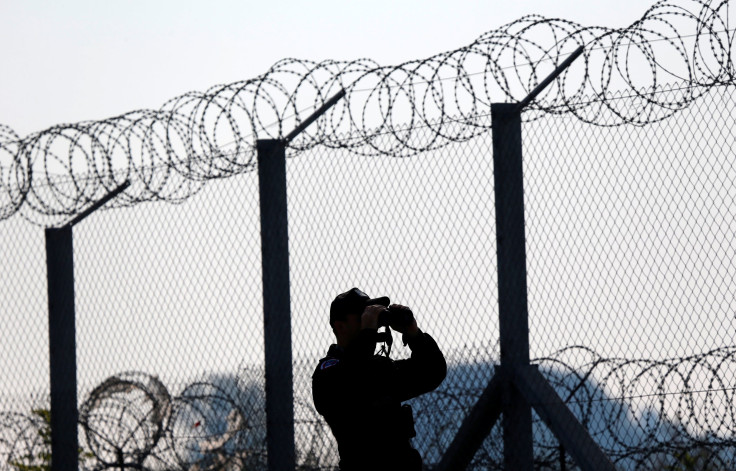Border Wall News: Hungary's Second Fence To Stop Refugees Will Be Finished By This Summer

Since President Donald Trump took office, he hasn’t given up on his promise to build a border wall along the U.S.-Mexico border to keep undocumented immigrants out. This week, he proposed cutting large swaths of the federal budget in order to pay for it, although he originally claimed Mexico would foot the bill.
But Trump wasn't the first world leader to think of this idea. In fact, the small, Eastern European country of Hungary already has one fence along its borders to stop refugees from coming in — and it has plans to build a second fence by summertime.
In 2015, Hungary received nearly 1,800 asylum applications from migrants per 100,000 people in the local population, according to BBC News, which is the most of any European nation during the refugee crisis last year. Last summer, Hungary told the European Union it would stop accepting migrants.
Read: Migrant-Hunting Hungarian Village Uses White Supremacist Rhetoric To Outlaw Muslim Practices
But refugees aren’t just stopping in Hungary — they’re traveling through the country, too. Hungary serves as a stepping stone on the path from southeastern Europe to central and western European countries such as Germany, France and the United Kingdom. Many Hungarian nationals have been irked by the influx of migrants, and Hungary built its first barbed wire fence — 13-feet tall and 110 miles long — along its southern border with Serbia.
The second fence will run alongside the first, which was a form of reinforcement to more effectively keep migrants out.
"It is definitely not smart policy that we place our safety in the hands of the Turks, and at the same time we keep pestering them, attacking them, criticizing them that they are not democratic enough ... and generating conflicts with them," Hungarian Prime Minister Viktor Orban said, according to Reuters.
Read: Over 3,000 Attacks Against Refugees In Germany Last Year, Report Says
Hungary’s fears about refugees entering its borders mirror the fears that many Americans have. They worry that migrants from Muslim-majority countries may bring extremist ideologies to Hungary, a nation of nearly 10 million. Those worries have been exacerbated by terrorist attacks over the past couple of years in Germany and France.
“Of course it’s not accepted, but the factual point is that all the terrorists are basically migrants,” Orban told Politico in 2015. “The question is when they migrated to the European Union.”
But refugees, too, have been the victims of attacks in Europe. Violent hate crimes against Muslims have been increasing in some European countries. In Germany, the number of assaults against refugees rose from 60 to 78 from 2015 to 2016, and the number of cases involving guns jumped from 31 to 57.
© Copyright IBTimes 2024. All rights reserved.












